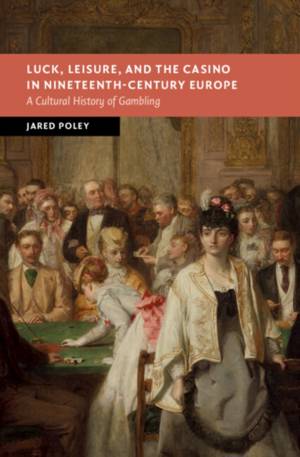
- Afhalen na 1 uur in een winkel met voorraad
- Gratis thuislevering in België vanaf € 30
- Ruim aanbod met 7 miljoen producten
- Afhalen na 1 uur in een winkel met voorraad
- Gratis thuislevering in België vanaf € 30
- Ruim aanbod met 7 miljoen producten
Zoeken
Luck, Leisure, and the Casino in Nineteenth-Century Europe
A Cultural History of Gambling
Jared Poley
€ 158,95
+ 317 punten
Omschrijving
Gambling was central to the cultural, social, and intellectual history of nineteenth-century Europe. By tracing the evolution of gambling and investigating the spatial qualities of the casino, this book reveals how Europeans used gambling to understand their changing world. The development of resorts and the architectural qualities of casinos demonstrate how new leisure practices, combined with revolutions in transportation and communication, fashioned resort gambling in the Rhineland and Riviera. Jared Poley explores the importance of casino gambling in people's lives, probing how gambling and fate intersected. The casino impacted understandings of the body, excited emotions, and drove the 'psychology' of the gambler, as well as affecting ideas about probability, chance, and luck. Ultimately, this book addresses the fundamental question of what gambling was for, and how it opened up opportunities to understand theories about aggression, play, and human development.
Specificaties
Betrokkenen
- Auteur(s):
- Uitgeverij:
Inhoud
- Aantal bladzijden:
- 220
- Taal:
- Engels
- Reeks:
Eigenschappen
- Productcode (EAN):
- 9781009393546
- Verschijningsdatum:
- 7/09/2023
- Uitvoering:
- Hardcover
- Formaat:
- Genaaid
- Afmetingen:
- 152 mm x 229 mm
- Gewicht:
- 476 g

Alleen bij Standaard Boekhandel
+ 317 punten op je klantenkaart van Standaard Boekhandel
Beoordelingen
We publiceren alleen reviews die voldoen aan de voorwaarden voor reviews. Bekijk onze voorwaarden voor reviews.











